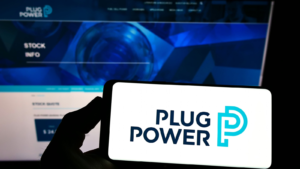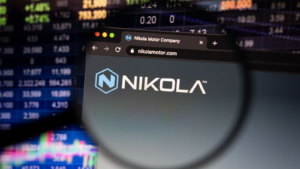Still, this short-term trend is not indicative of the long-term benefits and secular tailwinds guiding renewable energy. For example, the Inflation Reduction Act of 2022 provides tax incentives and subsidies to clean energy projects, including hydrogen energy projects. Investors desiring to allocate to clean energy equities assets should probably regard this major dip in equity value as an opportunity to allocate to companies that have the potential to be the next big thing in hydrogen fuel cell stocks.
Here are three such hydrogen stocks.
Bloom Energy (BE)

Bloom Energy (NYSE:BE) is a pure-play innovator in the hydrogen industry. The company’s solid oxide fuel cell technology can generate electricity from various fuels, including natural gas, biogas and hydrogen.
The Bloom Energy Server also produces electricity through an electrochemical process. This reduces the need for combustion and thereby reduces emissions. Bloom’s Energy Server can provide reliable, 24/7 power, making it an attractive option for businesses and institutions that require a constant power supply. The server also operates independently from the grid, which can prove crucial during power outages or in areas with unstable infrastructure.
Despite struggling with mixed earnings results in 2023, large energy companies have noticed the value of Bloom Energy’s technology. Recently, oil and gas giant Shell (NYSE:SHEL) announced a signed agreement with Bloom Energy to investigate opportunities in employing Bloom Energy’s fuel cells for hydrogen energy projects. This could be a growth catalyst for the company in the long term, despite short-term headwinds.
Plug Power (PLUG)

Plug Power (NASDAQ:PLUG) is the largest supplier of liquid hydrogen and the company produces hydrogen fuel cells for the supply chain and logistics industries. Companies within these sectors have developed the will to decrease their carbon footprint, and one way to go about it is by employing hydrogen fuel cells, where some go about this by deploying hydrogen-powered forklifts, trucks, buses and drones. Plug Power’s fuel cells are key to this. The hydrogen fuel cell developer has successfully formed several strategic partnerships with major players in the logistics sector including Amazon (NASDAQ:AMZN), Walmart (NYSE:WMT) and Airbus (OTCMKTS:EADSY).
Plug Power’s shares have plummeted 25% since the start of 2024. With uncertainty clouding Plug Power’s revenue growth prospects, the hydrogen fuel cell company announced a cost-cutting plan to save more than $75 million. These initiatives include operational consolidation and workforce adjustments.
Cuts to operational costs and strategic review could improve Plug Power’s earnings prospects and shareholder returns.
Nikola Corporation (NKLA)

Nikola (NASDAQ:NKLA) is producer of hydrogen and battery-powered semi-trucks. Since it went public in 2020, the EV maker has been plagued with scandals, lawsuits and regulatory investigations. In 2018, Nikola posted a promotional video for its Nikola One semi-truck prototype driving on a two-lane highway. After a damning report from Hindenburgh Research, Nikola management later admitted that the video was staged and the truck was not moving of its own accord.
Since then, Nikola has certainly had a mixed bag of earnings results. In Q4, Nikola delivered 35 hydrogen fuel cell trucks. The company also successfully raised $230 million in equity capital, bringing total cash and cash equivalents to $465 million at the end of 2023. The recent cash injection could help with R&D efforts and put the company back on investors’ radars as it continues to innovate.
On the date of publication, Tyrik Torres did not have (either directly or indirectly) any positions in the securities mentioned in this article. The opinions expressed in this article are those of the writer, subject to the InvestorPlace.com Publishing Guidelines.
Tyrik Torres has been studying and participating in financial markets since he was in college, and he has particular passion for helping people understand complex systems. His areas of expertise are semiconductor and enterprise software equities. He has work experience in both investing (public and private markets) and investment banking.
